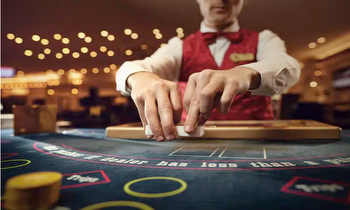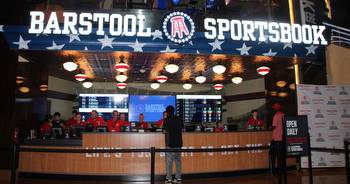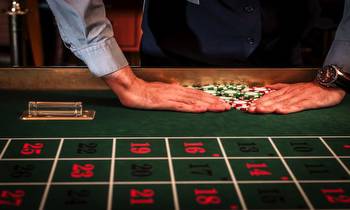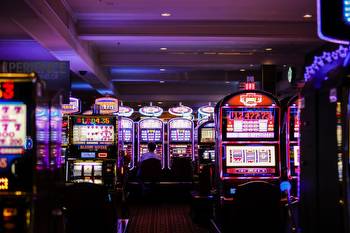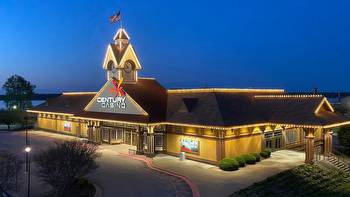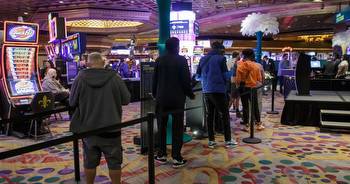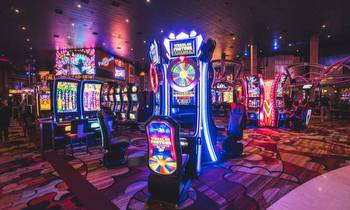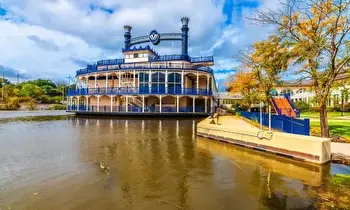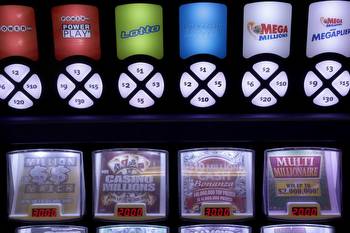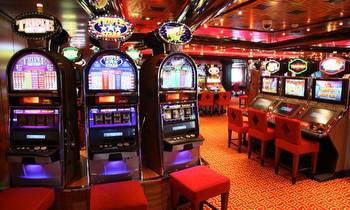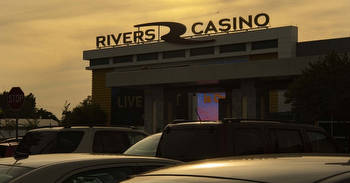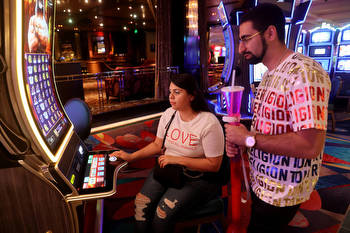2020 pandemic blues hit Kansas state-owned casinos; Hollywood Casino in KCK down 35%

Feb. 15—When the Kansas Legislature gambled on state-owned casinos, they weren't betting on a year like 2020.
Amid the COVID-19 pandemic, the state casinos went from their best year on record to their worst year ever.
Revenue generated by Kansas' four casinos — Kansas City, Mulvane, Dodge City and Pittsburg — dropped from $416 million in 2019 to about $300 million in 2020, according to public records. That $116.5 million decline represents a 28% year-to-year drop.
The share of the casinos' proceeds going to state and local government also fell 28%, from $112.5 million in 2019 to about $80.9 million in 2020.
The biggest decline — roughly 35% — came at the state's largest gambling house, the Hollywood Casino at the Kansas Speedway in Kansas City.
Revenue there was down $53.4 million, from $152.8 million in 2019 to $99.4 million in 2020. The state and local shares were down about $14.4 million.
"It's been a really difficult year for a lot of businesses and obviously, our casinos are part of that," said Stephen Durrell, executive director of the Kansas Lottery.
The Kansas Constitution bans gambling except through the state lottery or Native American tribes. That means the Kansas Lottery technically owns and operates the four state casinos, splitting income with private-sector partners who built the facilities and run them day-to-day.
The state's share of casino income is mainly used to pay off debt, build infrastructure and reduce local property taxes. State universities get a portion to boost engineering programs and another slice helps pay off unfunded liabilities in the state's KPERS pension program, according to state records. Counties and cities get a small split for the extra law-enforcement and social-service costs that go with hosting a casino.
No games, no bucks
As the seriousness of the COVID-19 pandemic started to become obvious last March, all state casinos were shut down as part of the broader stay-at-home order issued by Gov. Laura Kelly, who was seeking to slow the spread of the coronavirus that causes the disease.
The casinos stayed closed from March 17 until they got permission to reopen May 22.
"Two months out of the 12, not being there revenue-wise . . . is obviously going to make a giant impact on what your bottom line is," Durrell said.
And it did. But that wasn't the end of it.
When the casinos were allowed to reopen, it was at reduced capacity to allow space for at least six feet of social distancing between players, as required by state and local health orders.
The Hollywood Casino ordinarily operates about 2,000 slot machines, 50 gaming tables and a 12-table poker room.
Now, the casino's running at 1,200 machines and 20 tables with reduced seating. Like all Kansas casinos, the poker room is shut down, Durrell said.
Hollywood's performance trailed the other Kansas casinos because it faces more competition, Durrell said.
"Obviously Hollywood is in a mature gaming market," he said. "There are facilities across the river that people can go to."
Hollywood has five competitors in a 10-to 20-mile radius, including four major casinos on the Missouri side of the Missouri River and a small tribal casino on the Kansas side.
The casinos also had to spend extra on cleaning, sanitizing and Plexiglass barriers between players and dealers. Masks are required and supplied at the door, another added cost of doing business.
While the lottery generally leaves the details to operating partners, state officials now meet weekly with the casino managers for various reports, including COVID-positive test rates among employees and problems with patrons who refuse to follow safety protocols.
"We've taken a much more proactive role with patron safety in the last 10 months," Durrell said.
Poker still folded
In the age of COVID, poker offers a unique challenge and remains shut down throughout Kansas because the players sit in close proximity, which isn't safe, said Keith Kocher, the lottery's director of gaming facilities.
Unlike other casino games, poker players don't bet against the house, they bet against each other.
Success in poker often depends on reading "tells," slight physical reactions that can signal whether a player has a winning hand or is bluffing.
"In order to have a poker room, a poker table, they've got to sit right next to each other," Kocher said. "Partitions don't work well. It's very face-to-face."
The Hollywood Casino "basically owned poker in Kansas City until the pandemic," Kocher said.
And although poker is only a small fraction of the casino business, "it brings in other revenue, it brings in other players, it brings in spouses who play the machines."
But now, that business has crossed the river to Missouri casinos, where poker is allowed, he said.
Missouri's casinos were actually shuttered longer than Kansas', from March 17 to June 1.
But when they were allowed to reopen "we didn't put any restrictions on the games," said Missouri Gaming Commission Chairman Mike Leara.
In Missouri, casinos are taxed on overall revenue and on the number of gamblers admitted.
Statistics varied widely between Missouri's urban and rural casinos, but overall for the year, they were down about 30 percent on revenue and 40 percent on admissions, Leara said.
Leara said the difference in the decline between admissions and revenue shows that casual players may still be wary of casinos, but loyal gamblers are mostly back.
"Not really high rollers, but the much more frequent customers, (they) came back immediately," Leara said. "So while we've seen a reduction in the number of people coming year over year, the receipts, the adjusted gross, have not done too bad."
Future murky
On the Kansas side, all the state casinos saw revenues drop in 2020.
— The Kansas Star, at the Mulvane exit off the Kansas Turnpike south of Wichita, had a revenue decline of 24%, from $186.4 million in 2019 to $141.4 million in 2020.
— The Kansas Crossing Casino near Pittsburg, the state's newest casino, was down 25% year to year, from $35.4 million to $26.5 million.
— The Boot Hill Casino in Dodge City, the state's oldest, has outperformed the others through the pandemic. It saw a 22% revenue drop, from $41.4 million in 2019 to $32.1 million in 2020.
There's no telling when business will rebound to pre-pandemic levels, Durrell said.
"I think that's something that every economist on earth would like to know," he said. "It will depend on a number of different factors . . . how the virus numbers are going to pan out over the next several months, how vaccinations are rolled out and who's willing to take those."
Right now, the casinos seem to be "recovering a lot quicker than I thought they would," Durrell said. "They do have a long way to go.
"I wish that we weren't where we were, (but) overall, I think they're making a pretty steady progression back to normal. Knock on wood."








